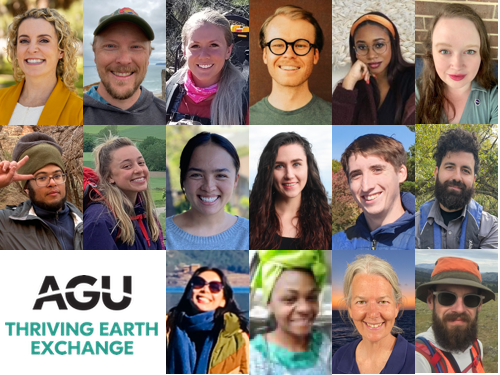
Thriving Earth Exchange is pleased to announce our March 2023 cohort of Community Science Fellows!
They’ll be working with communities from across the United States, Brazil, and Jamaica to launch impactful community science projects. The partnership will connect communities with scientists and technical experts and support them as they work together to tackle local challenges related to natural hazards, natural resources and climate change. Stay tuned for more information about the impactful projects to come from this launch and the communities who lead and inspire them!
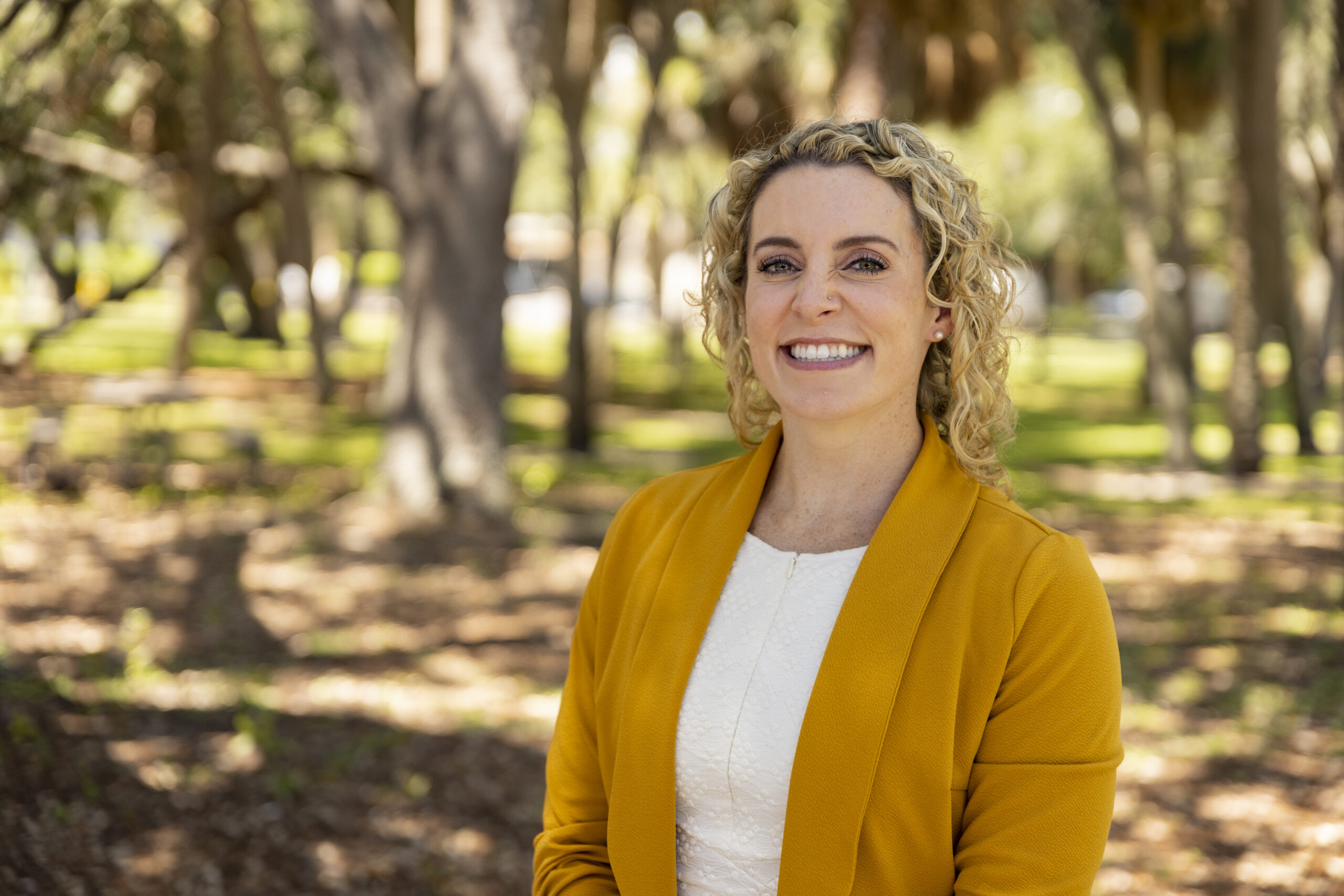 Dr. Amanda Hoffman Hall is an Assistant Professor of Environmental Studies at Eckerd College in sunny St. Petersburg, Florida, where she teaches courses in Environmental Studies, Environmental Health, Remote Sensing, and GIS. Dr. Hoffman-Hall earned her Ph.D. in Geographical Sciences at the University of Maryland College Park in 2020. Her research focuses on environmental health and justice, spatial epidemiology and prediction of infectious disease risk, and algorithm development for satellite mapping of land cover and land-use change. She believes that the best outcomes of health and environmental research arise when projects prioritize community knowledge and expertise, and scientists, activists, community members, and policymakers work together towards just solutions. She has authored publications in the journals GeoHealth, Remote Sensing of Environment, Remote Sensing, and Environmental Research Letters, but is most proud of her two littlest “co-authors”, her 7 and 4-year-old children.
Dr. Amanda Hoffman Hall is an Assistant Professor of Environmental Studies at Eckerd College in sunny St. Petersburg, Florida, where she teaches courses in Environmental Studies, Environmental Health, Remote Sensing, and GIS. Dr. Hoffman-Hall earned her Ph.D. in Geographical Sciences at the University of Maryland College Park in 2020. Her research focuses on environmental health and justice, spatial epidemiology and prediction of infectious disease risk, and algorithm development for satellite mapping of land cover and land-use change. She believes that the best outcomes of health and environmental research arise when projects prioritize community knowledge and expertise, and scientists, activists, community members, and policymakers work together towards just solutions. She has authored publications in the journals GeoHealth, Remote Sensing of Environment, Remote Sensing, and Environmental Research Letters, but is most proud of her two littlest “co-authors”, her 7 and 4-year-old children.
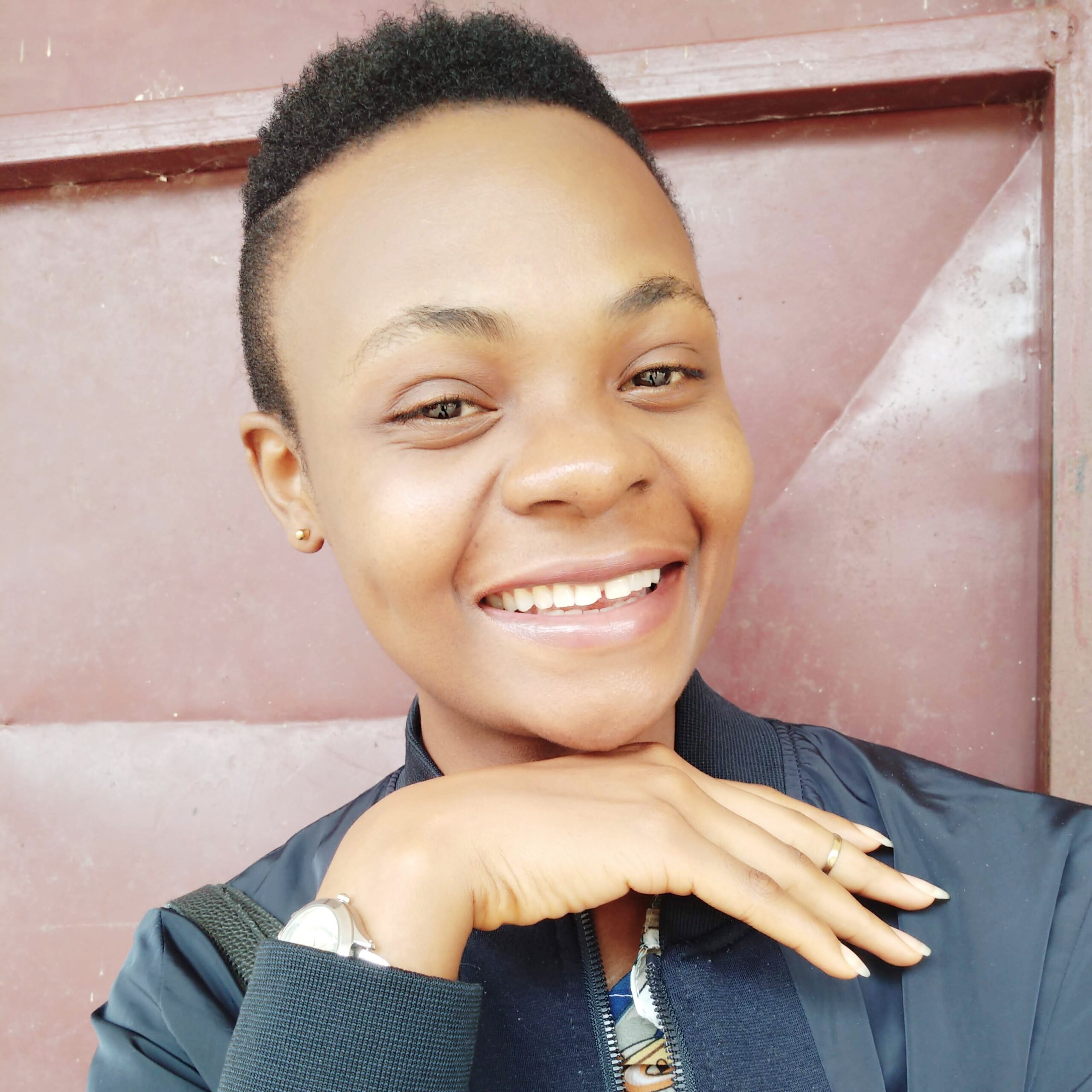
Audrey Maatchi. “Responsible consumption, sustainable production. What if it becomes our DNA, the DNA of each of our eight billion neighbours?” Keen to be part of the solution to a healthy world, Sustainable First is her tagline. Audrey deeply believes that sustainable development is only possible if we shift our consumption and production patterns to more sustainable ones. She always asks: “imagine how well we, our children’s children, and the planet will feel if each of us can avoid or progressively reduce our use of plastic?” Because her main objective is to see in 2030, Cameroonian, Ethiopian, Burkinabe, … cities shining the light of Sustainability, she founded AudGreen Consulting, a business that accompany organisations to better perform by adopting sustainability in their development strategy and daily routines. She trusts that by initiating the Green awareness in the workplace, many people as possible will be involve as ambassadors of a sustainable lifestyle in their families and communities.
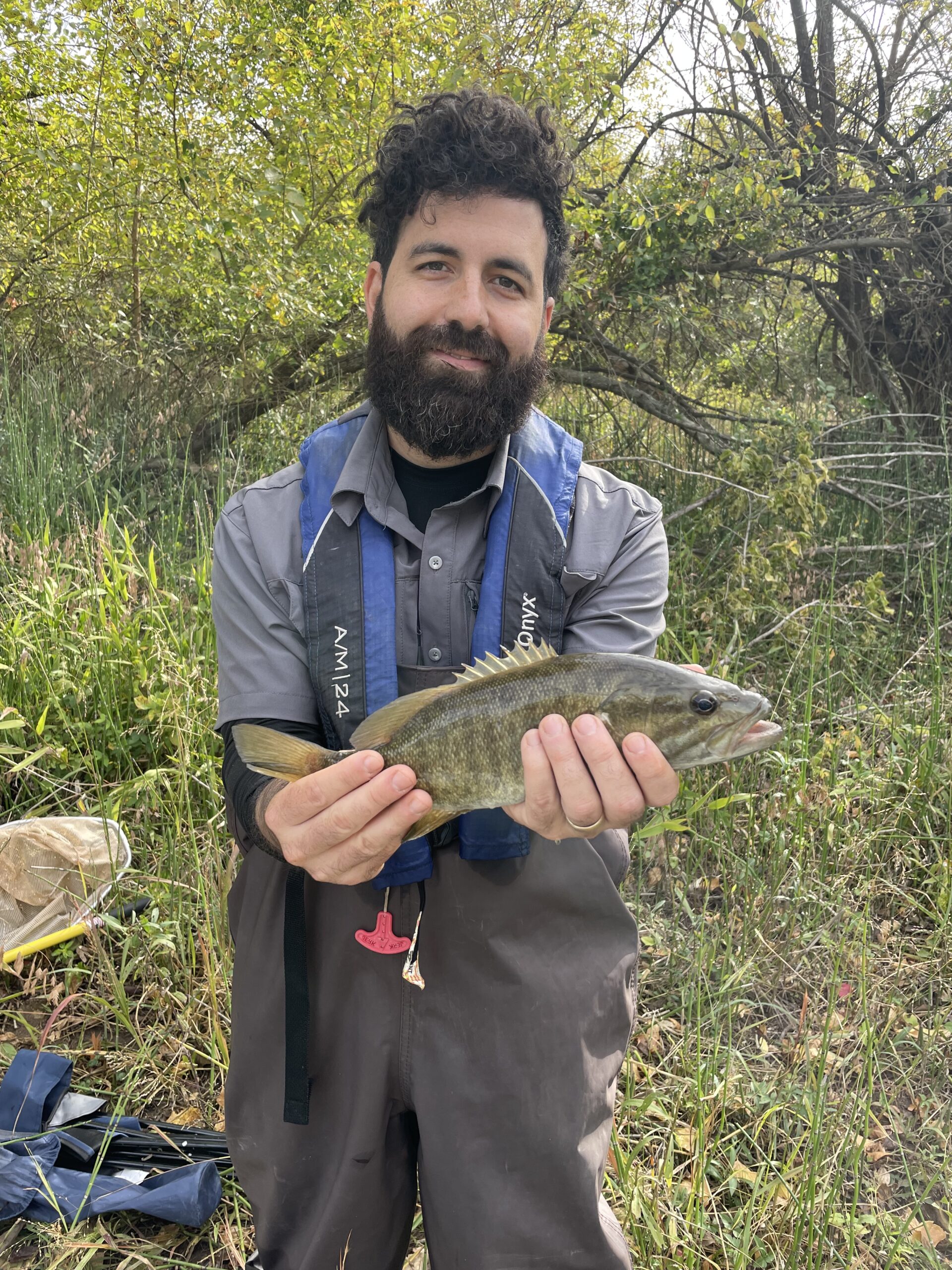 Canaan Sutton (he/him) is a Botanist and Flora Field Ecologist for the Southern Plains domain of the National Ecological Observatory Network (NEON). His undergraduate degrees from Texas A&M University – Commerce are in Environmental Science and Biology, and he his graduate work focused on habitat restoration of imperiled tallgrass prairie. He has also studied the spatial ecology of western cottonmouths (Agkistrodon piscivorous), foraging strategies of honeybees on ornamental trees, and phytoremediation of contaminated environments using several plant species. He is the president of the Blackland Prairie chapter of the Native Prairies Association of Texas (NPAT). Outside of ecological work, Canaan loves to play drums, read, garden, and go on adventures with his family.
Canaan Sutton (he/him) is a Botanist and Flora Field Ecologist for the Southern Plains domain of the National Ecological Observatory Network (NEON). His undergraduate degrees from Texas A&M University – Commerce are in Environmental Science and Biology, and he his graduate work focused on habitat restoration of imperiled tallgrass prairie. He has also studied the spatial ecology of western cottonmouths (Agkistrodon piscivorous), foraging strategies of honeybees on ornamental trees, and phytoremediation of contaminated environments using several plant species. He is the president of the Blackland Prairie chapter of the Native Prairies Association of Texas (NPAT). Outside of ecological work, Canaan loves to play drums, read, garden, and go on adventures with his family.
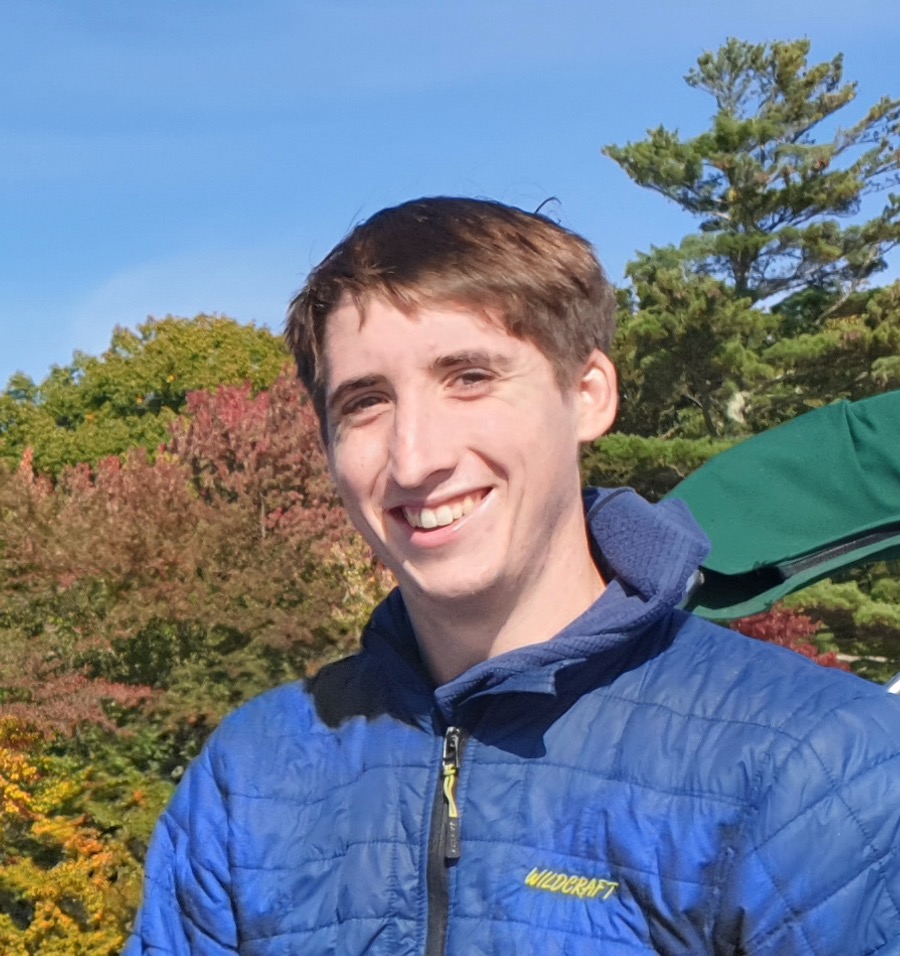 Duncan Wheeler is a Ph.D. Candidate in Oceanography at Scripps Institution of Oceanography at University of California, San Diego. Duncan studies the impact of low frequency waves on shallow estuaries and is advised by Dr. Sarah Giddings. He is also a recipient of the National Science Foundation Graduate Research Fellowship and has attained a B.S. in Physics from MIT. As an additional area of research, Duncan interviews professors to understand how academic culture impacts oceanographic research. On campus, Duncan has started a math transition workshop for first year graduate students and is a volunteer diver at the Birch Aquarium. Duncan is interested in how we can change the way science is done to better support communities and is excited to gain firsthand experience applying these practices.
Duncan Wheeler is a Ph.D. Candidate in Oceanography at Scripps Institution of Oceanography at University of California, San Diego. Duncan studies the impact of low frequency waves on shallow estuaries and is advised by Dr. Sarah Giddings. He is also a recipient of the National Science Foundation Graduate Research Fellowship and has attained a B.S. in Physics from MIT. As an additional area of research, Duncan interviews professors to understand how academic culture impacts oceanographic research. On campus, Duncan has started a math transition workshop for first year graduate students and is a volunteer diver at the Birch Aquarium. Duncan is interested in how we can change the way science is done to better support communities and is excited to gain firsthand experience applying these practices.
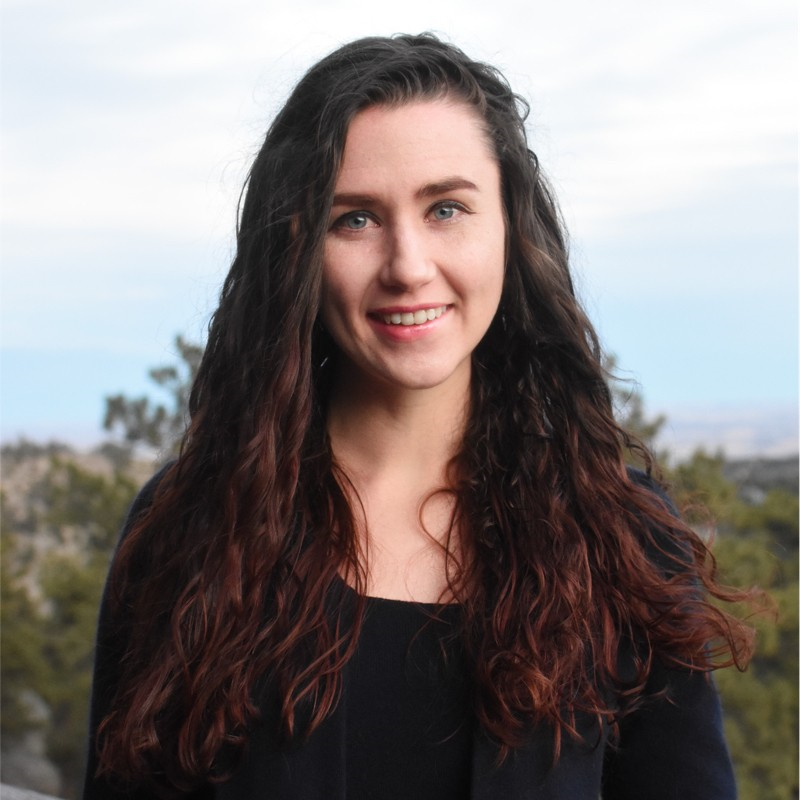 Emily Franklin is an environmental engineer and atmospheric scientist from Boulder, Colorado. Emily earned her BS in Environmental Engineering at Yale University in 2017, where she conducted research in Dr. Drew Gentner’s research group and ran for the cross country and track and field teams. She then joined Dr. Allen Goldstein’s group at UC Berkeley, where she earned her MS in Environmental Engineering in 2018 and PhD in Environmental Engineering in 2022. Currently, Emily is an NSF-MPS Ascend Postdoctoral Fellow in Dr. Delphine Farmer’s group at Colorado State University. Her research investigates human impacts on aerosol formation and composition from remote to urban environments and includes development of machine learning-based models for enhanced characterization of complex organic mixtures. Outside of research, Emily has focused on preventing harassment during field research, teaching math and environmental science at San Quentin State Prison, and mitigating aerosol exposure in schools.
Emily Franklin is an environmental engineer and atmospheric scientist from Boulder, Colorado. Emily earned her BS in Environmental Engineering at Yale University in 2017, where she conducted research in Dr. Drew Gentner’s research group and ran for the cross country and track and field teams. She then joined Dr. Allen Goldstein’s group at UC Berkeley, where she earned her MS in Environmental Engineering in 2018 and PhD in Environmental Engineering in 2022. Currently, Emily is an NSF-MPS Ascend Postdoctoral Fellow in Dr. Delphine Farmer’s group at Colorado State University. Her research investigates human impacts on aerosol formation and composition from remote to urban environments and includes development of machine learning-based models for enhanced characterization of complex organic mixtures. Outside of research, Emily has focused on preventing harassment during field research, teaching math and environmental science at San Quentin State Prison, and mitigating aerosol exposure in schools.
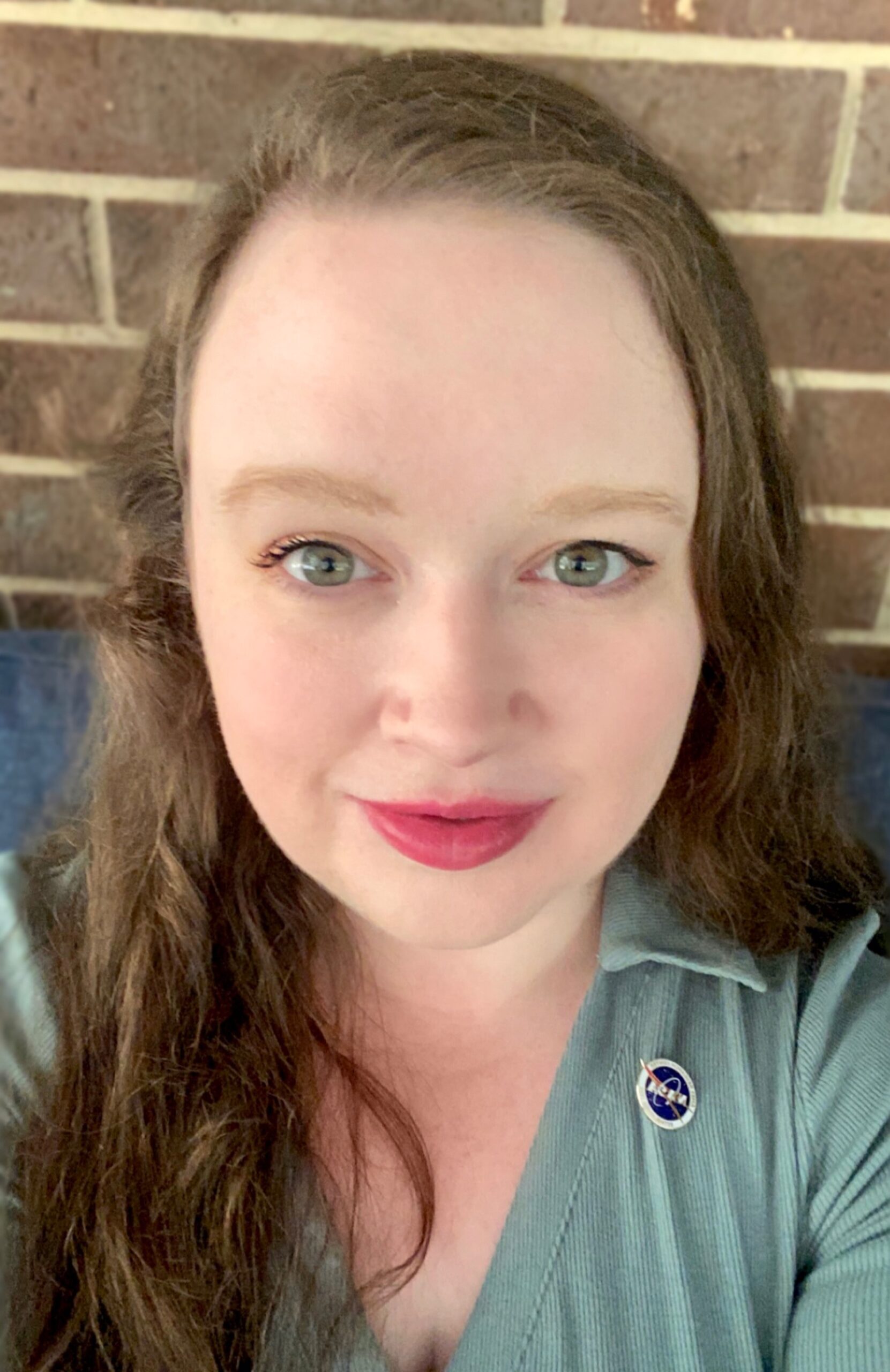 Erica Kriner (she/her) is the Communications Officer for the Space Generation Advisory Council’s Advocacy & Policy Platform and an Orientation Officer and Alumni Mentor for the Brooke Owens Fellowship. Her work is primarily in building capacity, often at the intersection of science and storytelling. Before her work with these organizations, Erica was a six-time NASA intern, where she helped research the Agency’s approach to resilience within its Earth Science Division. Additionally, she supported NASA’s DEVELOP program as a team lead, exploring coastline change after natural disasters in the gulf. Erica was a summa cum laude graduate from Arizona State University with a Bachelor of Science in geography. She is currently working towards her master’s in business administration from the University of Alabama in Huntsville. Erica is excited to continue elevating communities and leveraging science to address community concerns with the Thriving Earth Exchange. In her free time, Erica is the creator and co-host of a movie commentary podcast and an avid world traveler.
Erica Kriner (she/her) is the Communications Officer for the Space Generation Advisory Council’s Advocacy & Policy Platform and an Orientation Officer and Alumni Mentor for the Brooke Owens Fellowship. Her work is primarily in building capacity, often at the intersection of science and storytelling. Before her work with these organizations, Erica was a six-time NASA intern, where she helped research the Agency’s approach to resilience within its Earth Science Division. Additionally, she supported NASA’s DEVELOP program as a team lead, exploring coastline change after natural disasters in the gulf. Erica was a summa cum laude graduate from Arizona State University with a Bachelor of Science in geography. She is currently working towards her master’s in business administration from the University of Alabama in Huntsville. Erica is excited to continue elevating communities and leveraging science to address community concerns with the Thriving Earth Exchange. In her free time, Erica is the creator and co-host of a movie commentary podcast and an avid world traveler.
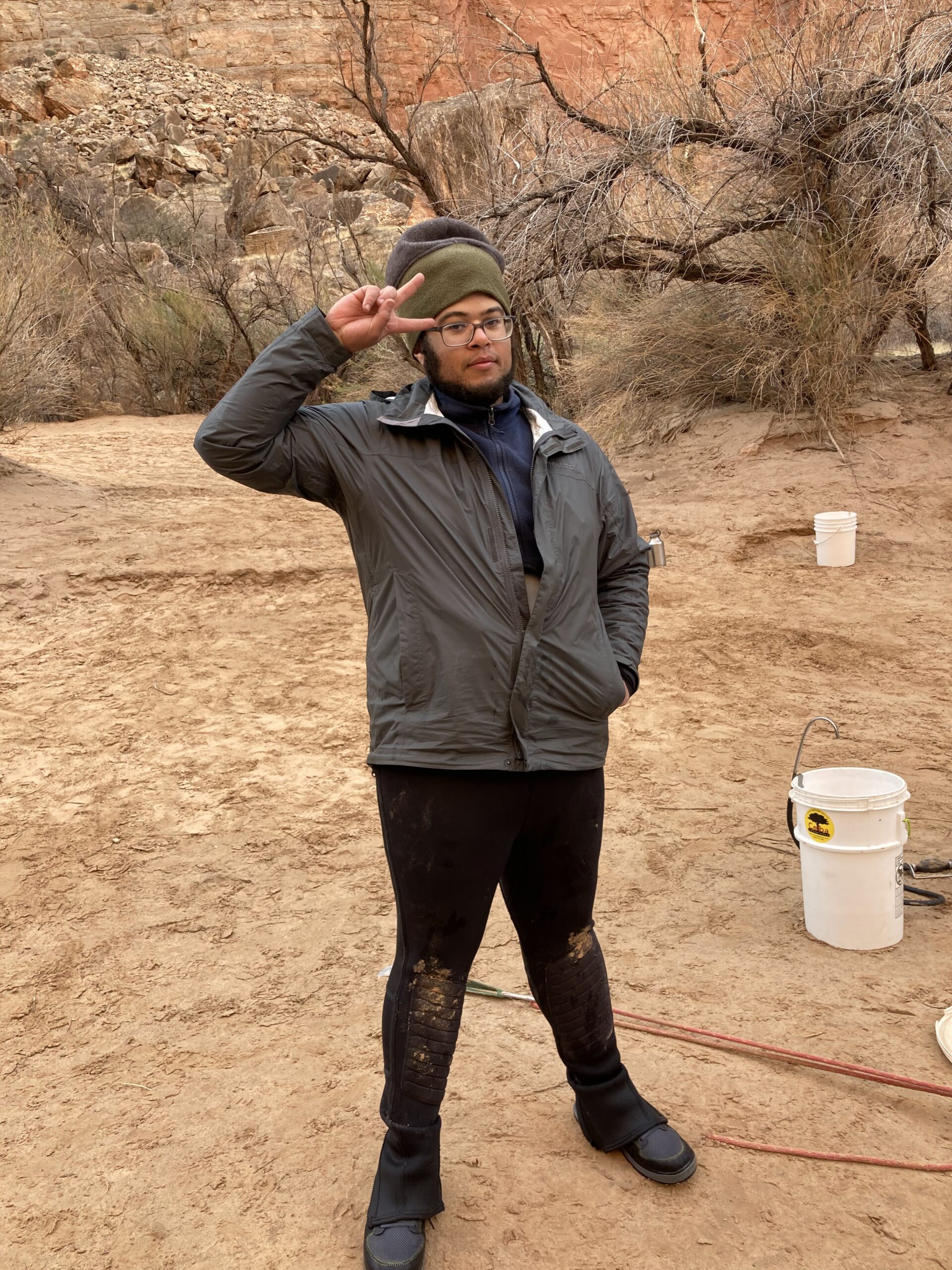 Jabari Jones (he/him) is an avid retro video game collector, cat owner, musician (though not playing as often as he would like), and ultimate frisbee coach. He is also a PhD candidate at the University of Minnesota Twin Cities and the Diversity Pre-Doctoral Teaching Fellowing at the University of Minnesota Morris. His research interests are at the intersection of humans and geomorphology, as he works to understand how direct and indirect human actions influence riverine processes. He is excited about interdisciplinary collaboration, and has worked with ecologists, engineers, and social scientists to unravel the complexity of river systems. He is also an advocate for community science, and has co-led an effort to support environmental organizations in the Twin Cities by sharing resources and bringing them into conversation with the University of Minnesota.
Jabari Jones (he/him) is an avid retro video game collector, cat owner, musician (though not playing as often as he would like), and ultimate frisbee coach. He is also a PhD candidate at the University of Minnesota Twin Cities and the Diversity Pre-Doctoral Teaching Fellowing at the University of Minnesota Morris. His research interests are at the intersection of humans and geomorphology, as he works to understand how direct and indirect human actions influence riverine processes. He is excited about interdisciplinary collaboration, and has worked with ecologists, engineers, and social scientists to unravel the complexity of river systems. He is also an advocate for community science, and has co-led an effort to support environmental organizations in the Twin Cities by sharing resources and bringing them into conversation with the University of Minnesota.
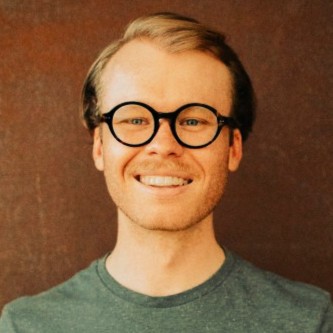 James Collins (he/they) is an applied geographer and data analyst from Central Texas with an educational background in environmental and political sciences. James currently works in local government and aspires to a career in climate resilience research that integrates human-environment geography, equitable risk reduction, and community-engaged research. When not studying or working, James is listening to local radio, searching for the perfect taco, and cycling through the Texas Hill Country.
James Collins (he/they) is an applied geographer and data analyst from Central Texas with an educational background in environmental and political sciences. James currently works in local government and aspires to a career in climate resilience research that integrates human-environment geography, equitable risk reduction, and community-engaged research. When not studying or working, James is listening to local radio, searching for the perfect taco, and cycling through the Texas Hill Country.
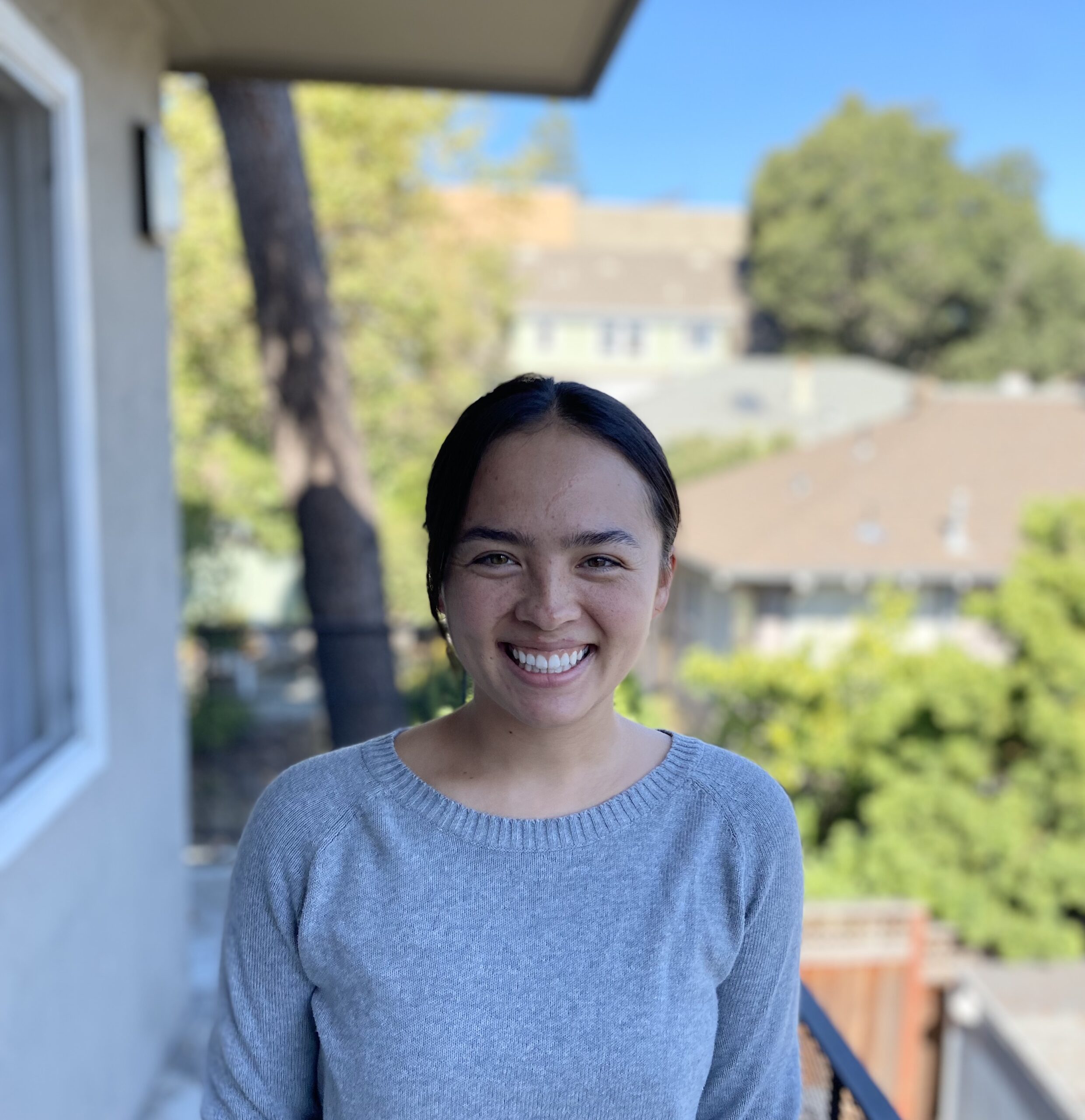 Jamie Zwaschka bio coming soon
Jamie Zwaschka bio coming soon
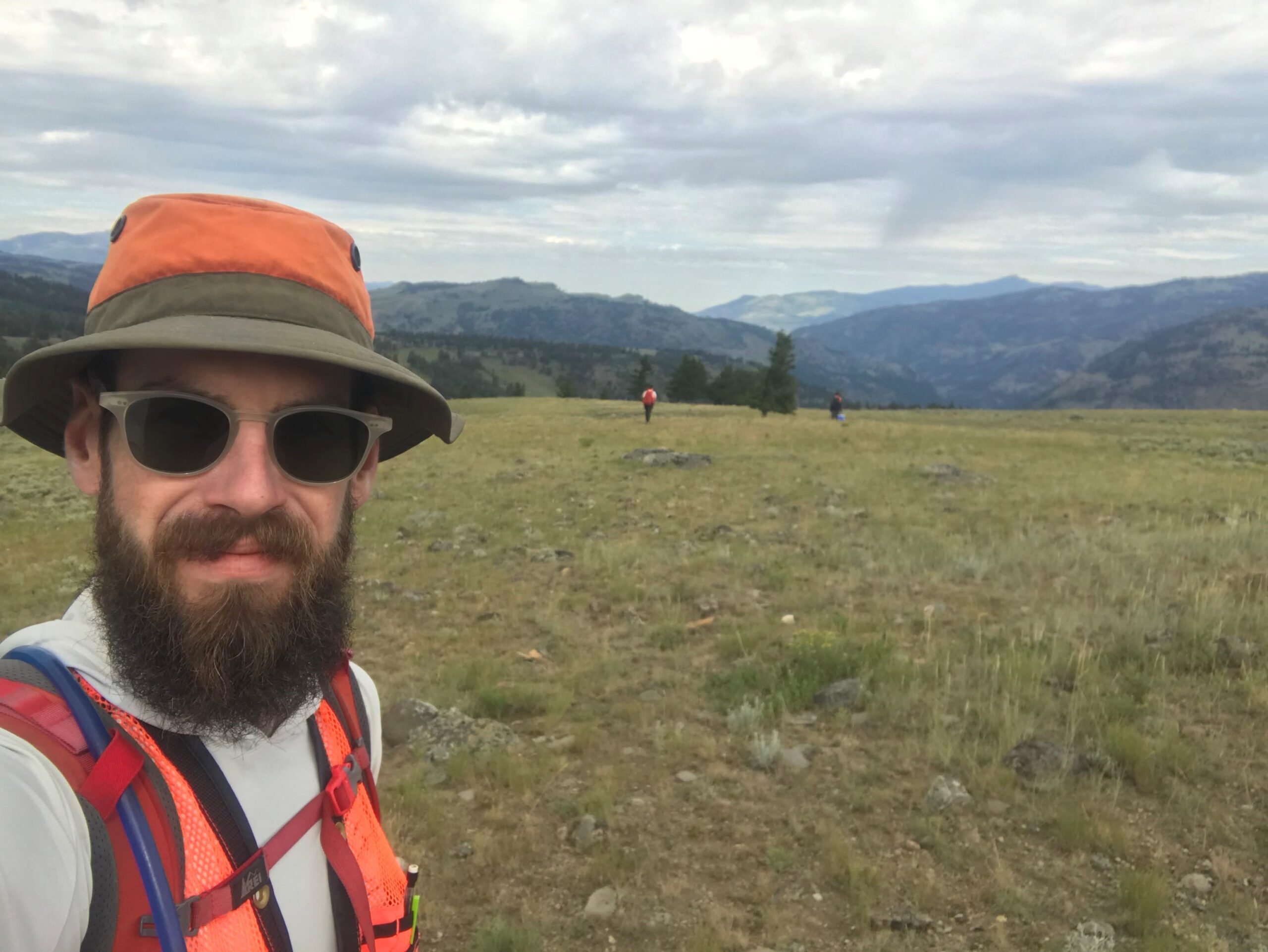 Jarrett Jamison is a Terrestrial Field Ecologist and has worked for NEON for the past 7 years. He started out with the Southern Plains domain in Texas, where he spent 4 years working as a botanist. He now oversees all terrestrial sampling in Yellowstone National Park for the Northern Rockies domain, aside from small mammals. He has assisted with sampling efforts at numerous domains across the NEON observatory, 7 different sites so far! Jarrett received his B.S. in Rangeland Ecology and Management from Texas A&M. Outside of work Jarrett volunteers with the Gallatin Watershed Council and the Valley of the Flowers Project. When he isn’t using his time towards conservation efforts for the Greater Yellowstone Ecosystem, he is out enjoying it by rock climbing in the summer and ice climbing in the winter.
Jarrett Jamison is a Terrestrial Field Ecologist and has worked for NEON for the past 7 years. He started out with the Southern Plains domain in Texas, where he spent 4 years working as a botanist. He now oversees all terrestrial sampling in Yellowstone National Park for the Northern Rockies domain, aside from small mammals. He has assisted with sampling efforts at numerous domains across the NEON observatory, 7 different sites so far! Jarrett received his B.S. in Rangeland Ecology and Management from Texas A&M. Outside of work Jarrett volunteers with the Gallatin Watershed Council and the Valley of the Flowers Project. When he isn’t using his time towards conservation efforts for the Greater Yellowstone Ecosystem, he is out enjoying it by rock climbing in the summer and ice climbing in the winter.
Jasmine Wilkes photo and bio coming soon
Jenna Dodson photo coming soon
Jenna Dodson (she/her) is the staff scientist at West Virginia Rivers Coalition. She coordinates a variety of source water and policy programs, including the WV-VA Water Quality Monitoring Program and the WV Water Policy Workgroup. She is passionate about community engagement and science communication. After graduating from Virginia Commonwealth University with a B.S. and M.S. in Environmental Studies, she served as an agroforestry extension agent in Peace Corps Senegal. She has worked as a research assistant at Gothenburg University and West Virginia University, and previously coordinated the Georgia Adopt-A-Stream water quality monitoring program. Jenna is excited about joining the Thriving Earth Exchange Program and co-producing science with community members. Outside of work, she can usually be found by a river trail running, birding, biking, rock climbing or doing acroyoga.
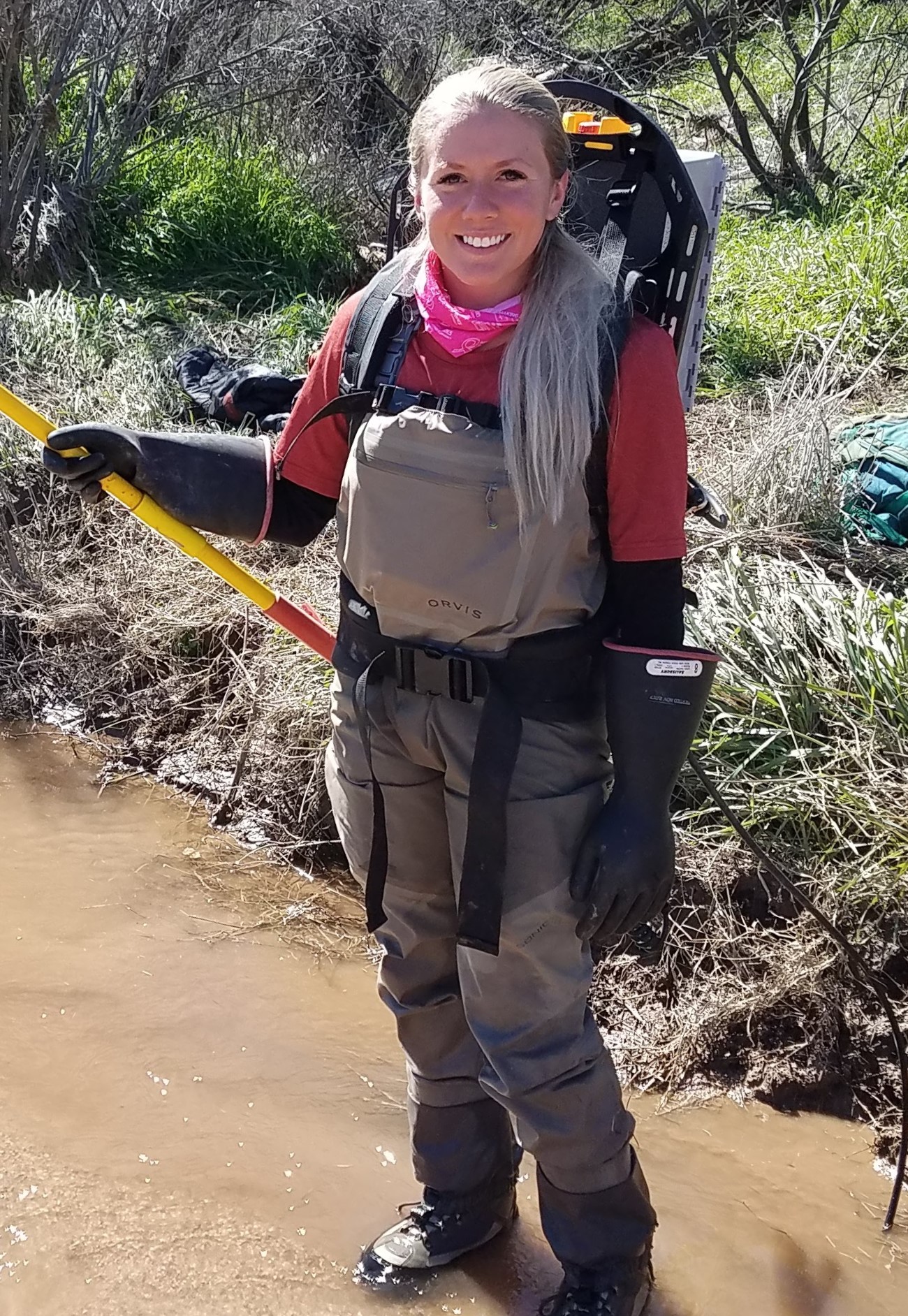 Katie Matthiesen is a dedicated naturalist and outdoor enthusiast working as a Fauna Field Ecologist for the National Ecological Observatory Network’s (NEON) desert southwest field office, based in Tucson, Arizona. Her focus is collecting and coordinating all observational sampling of small mammals, ground beetles, mosquitoes, and ticks. She earned her Bachelors of Science degree in Wildlife Conservation and Management from the University of Arizona, and joined the NEON program in 2016. Katie has always been passionate about outreach and connecting with her community, and she looks forward to combining this passion with her professional expertise as a TEX Community Science Fellow. Katie’s interests outside of work include hunting, fishing, paddle boarding, and exploring the mountains of Tucson with her dog.
Katie Matthiesen is a dedicated naturalist and outdoor enthusiast working as a Fauna Field Ecologist for the National Ecological Observatory Network’s (NEON) desert southwest field office, based in Tucson, Arizona. Her focus is collecting and coordinating all observational sampling of small mammals, ground beetles, mosquitoes, and ticks. She earned her Bachelors of Science degree in Wildlife Conservation and Management from the University of Arizona, and joined the NEON program in 2016. Katie has always been passionate about outreach and connecting with her community, and she looks forward to combining this passion with her professional expertise as a TEX Community Science Fellow. Katie’s interests outside of work include hunting, fishing, paddle boarding, and exploring the mountains of Tucson with her dog.
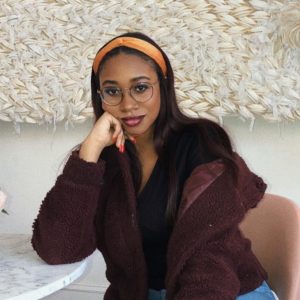 Kya Williams bio coming soon
Kya Williams bio coming soon
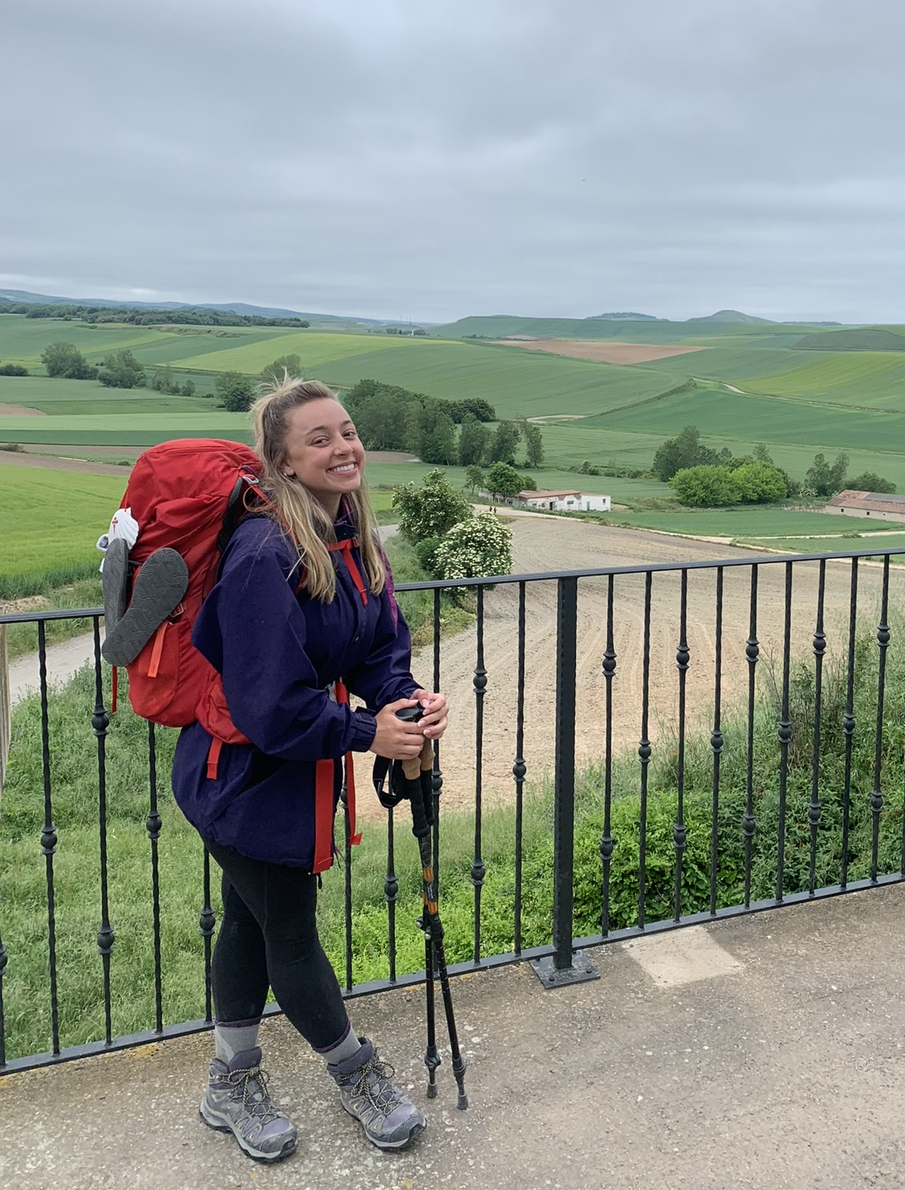 Sabrina Cammisa (she/her) is a recent graduate from American University and holds a B.A. in International Relations, focusing on Global Health and Environmental Sustainability. She is interested in how everyday lived experiences are determined by our social, economic, and political location within larger systems, and is motivated to deconstruct the parts of the system that impede empowerment and justice. Her preferred analytical methods are rooted in systems thinking and sociological, anthropological, and emancipatory approaches to research, knowledge creation, and intervention design. In practice, she is passionate about working with and for local communities within a paradigm of partnership and empowerment, broadly understanding health as everything that goes into the wellbeing of people, communities, and the planet. Her experience has taken her from experiential learning and fundraising in partnership with community-based organizations in Haiti, to empowering Washingtonians at elevated risk of HIV acquisition, to facilitating social integration of migrant youth through street soccer in Madrid. She is currently based in Washington D.C. and employed at a think tank, and while she aspires to go to graduate school in a few years, these days she enjoys backpacking, cooking with loved ones, and finishing good books in a single weekend.
Sabrina Cammisa (she/her) is a recent graduate from American University and holds a B.A. in International Relations, focusing on Global Health and Environmental Sustainability. She is interested in how everyday lived experiences are determined by our social, economic, and political location within larger systems, and is motivated to deconstruct the parts of the system that impede empowerment and justice. Her preferred analytical methods are rooted in systems thinking and sociological, anthropological, and emancipatory approaches to research, knowledge creation, and intervention design. In practice, she is passionate about working with and for local communities within a paradigm of partnership and empowerment, broadly understanding health as everything that goes into the wellbeing of people, communities, and the planet. Her experience has taken her from experiential learning and fundraising in partnership with community-based organizations in Haiti, to empowering Washingtonians at elevated risk of HIV acquisition, to facilitating social integration of migrant youth through street soccer in Madrid. She is currently based in Washington D.C. and employed at a think tank, and while she aspires to go to graduate school in a few years, these days she enjoys backpacking, cooking with loved ones, and finishing good books in a single weekend.
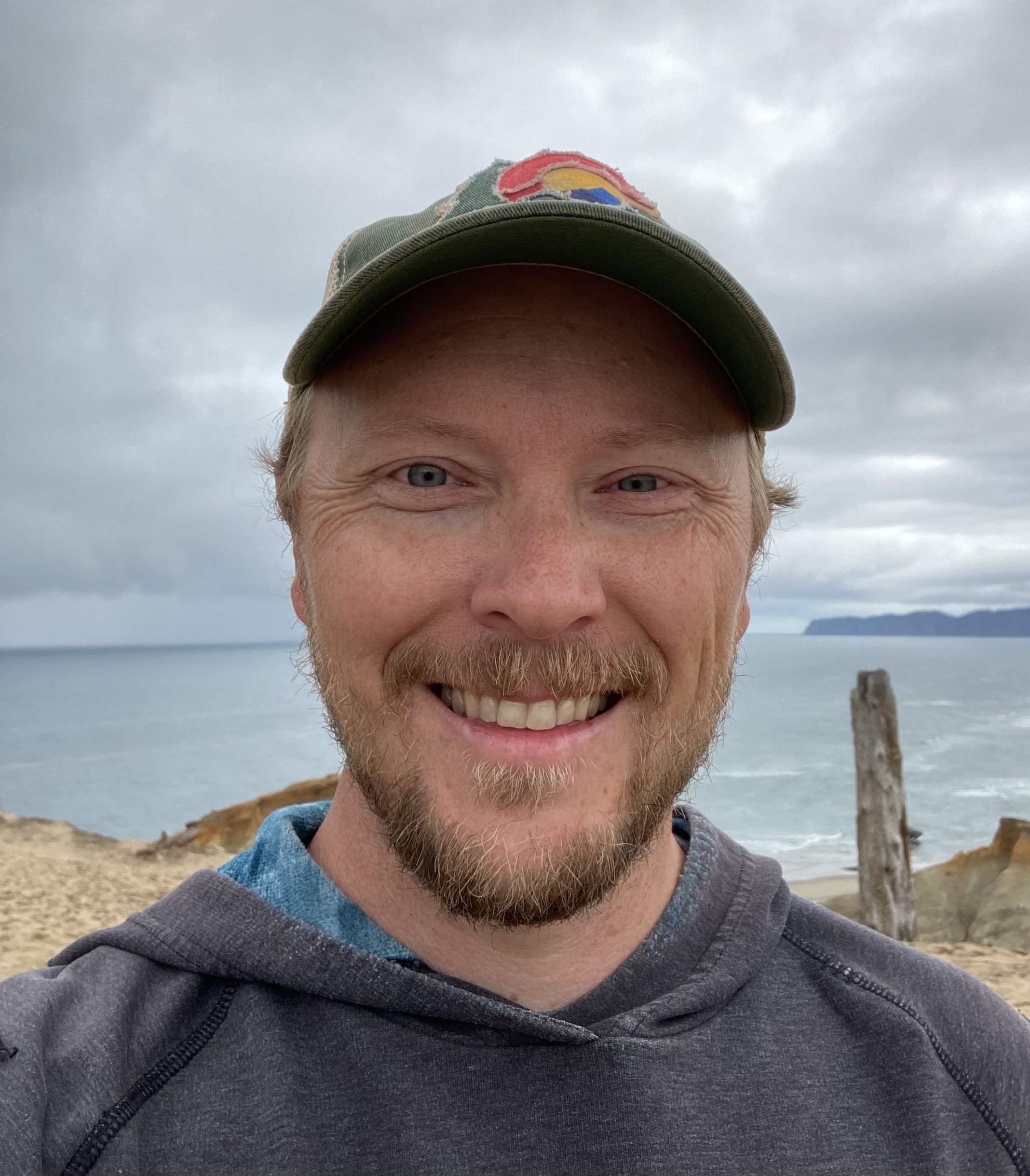 Sean Bryan (he/him) works as a Geosciences Instructor at Colorado State University. He teaches courses on introductory geology, Earth sciences for educators, and diversity and inclusion in natural resources. His academic training is in geology, paleoclimatology, and paleoceanography. He earned a B.A. in Geology from Carleton College, and a M.S. and Ph.D. in Geological Sciences from the University of Colorado at Boulder. Sean grew up in Colorado, Missouri, and Ohio. He is married and has two children, an 8 year old daughter and a 14 year old son. He enjoys camping, traveling, running, cooking and gardening.
Sean Bryan (he/him) works as a Geosciences Instructor at Colorado State University. He teaches courses on introductory geology, Earth sciences for educators, and diversity and inclusion in natural resources. His academic training is in geology, paleoclimatology, and paleoceanography. He earned a B.A. in Geology from Carleton College, and a M.S. and Ph.D. in Geological Sciences from the University of Colorado at Boulder. Sean grew up in Colorado, Missouri, and Ohio. He is married and has two children, an 8 year old daughter and a 14 year old son. He enjoys camping, traveling, running, cooking and gardening.
Shea Uehana photo and bio coming soon
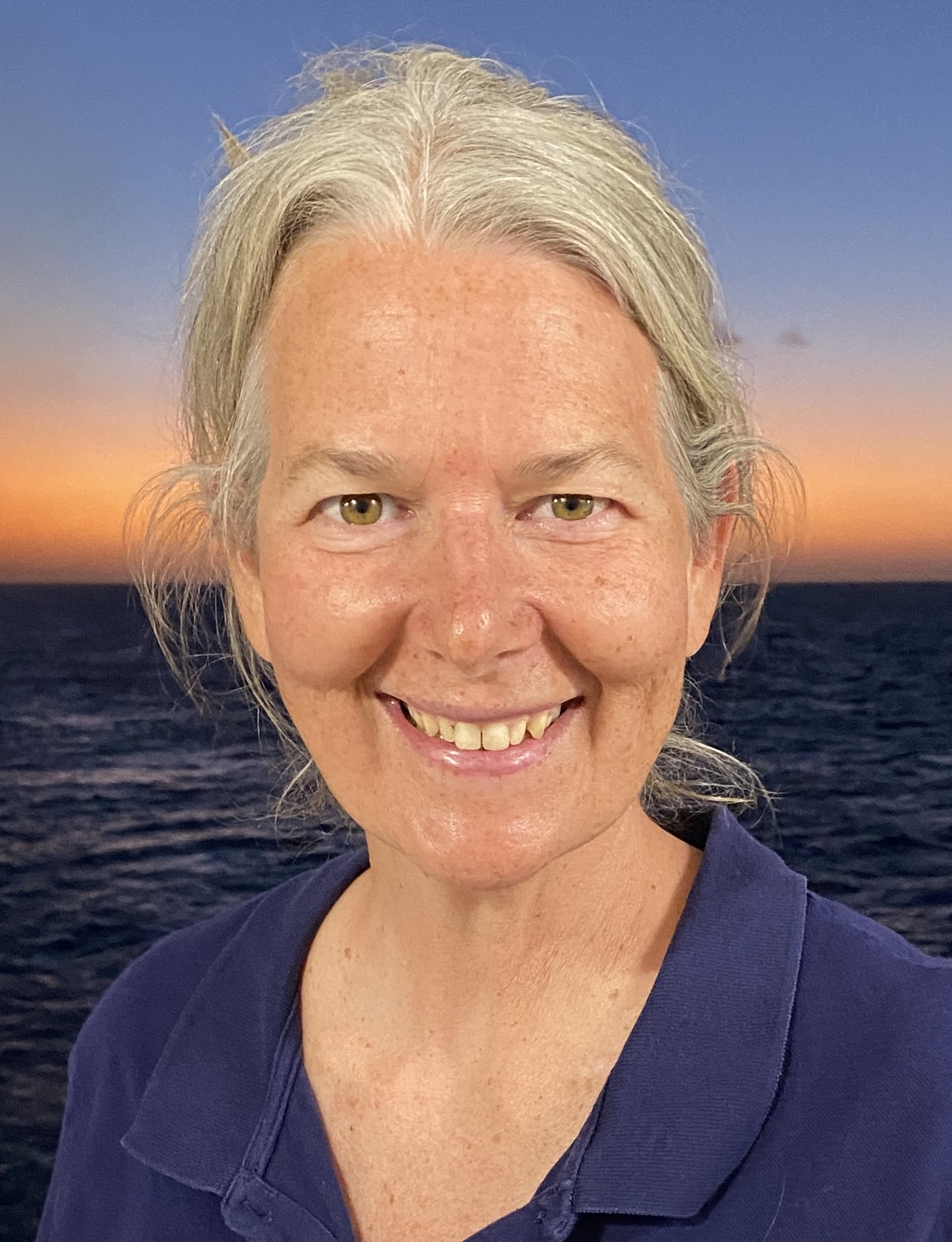 Dr. Susan Kirch (she/her) is a science educator, molecular biologist and (now) an independent scholar. She recently retired from New York University where she was a tenured professor in the Department of Teaching and Learning. She earned a BA with honors in Biochemistry from Mount Holyoke College (1989) and a Ph.D. in Cell and Molecular Biology from Harvard University (1996). While working as a post-doctoral scholar in neurogenetics at University of California San Francisco, Sue co-taught with public school teachers and researchers who helped her develop a keen interest in promoting high-quality science education for K-12 students and teachers. Subsequently, she taught undergraduate-level biology, microbiology, environmental science and human health and disease in the Science in Our Lives program she designed for future teachers; she prepared future teachers for teaching elementary school science and for conducting research on teaching and learning; and she led the science education specialization in the Teaching and Learning Doctoral program. In the field of science education, Sue published chapters and articles on inclusion, feminist pedagogy, co-teaching, and elementary science education. Prior to her work in education, she conducted research (and published) in developmental neurogenetics, immunology and evolutionary biology. Sue enjoys co-authoring research projects and is interested in using her experiences to assist community members further develop catalytic and empowering projects that lead to new knowledge and viable solutions. In her free time, Sue is enjoying “adventurement” with her husband by traveling, learning, working, and walking.
Dr. Susan Kirch (she/her) is a science educator, molecular biologist and (now) an independent scholar. She recently retired from New York University where she was a tenured professor in the Department of Teaching and Learning. She earned a BA with honors in Biochemistry from Mount Holyoke College (1989) and a Ph.D. in Cell and Molecular Biology from Harvard University (1996). While working as a post-doctoral scholar in neurogenetics at University of California San Francisco, Sue co-taught with public school teachers and researchers who helped her develop a keen interest in promoting high-quality science education for K-12 students and teachers. Subsequently, she taught undergraduate-level biology, microbiology, environmental science and human health and disease in the Science in Our Lives program she designed for future teachers; she prepared future teachers for teaching elementary school science and for conducting research on teaching and learning; and she led the science education specialization in the Teaching and Learning Doctoral program. In the field of science education, Sue published chapters and articles on inclusion, feminist pedagogy, co-teaching, and elementary science education. Prior to her work in education, she conducted research (and published) in developmental neurogenetics, immunology and evolutionary biology. Sue enjoys co-authoring research projects and is interested in using her experiences to assist community members further develop catalytic and empowering projects that lead to new knowledge and viable solutions. In her free time, Sue is enjoying “adventurement” with her husband by traveling, learning, working, and walking.
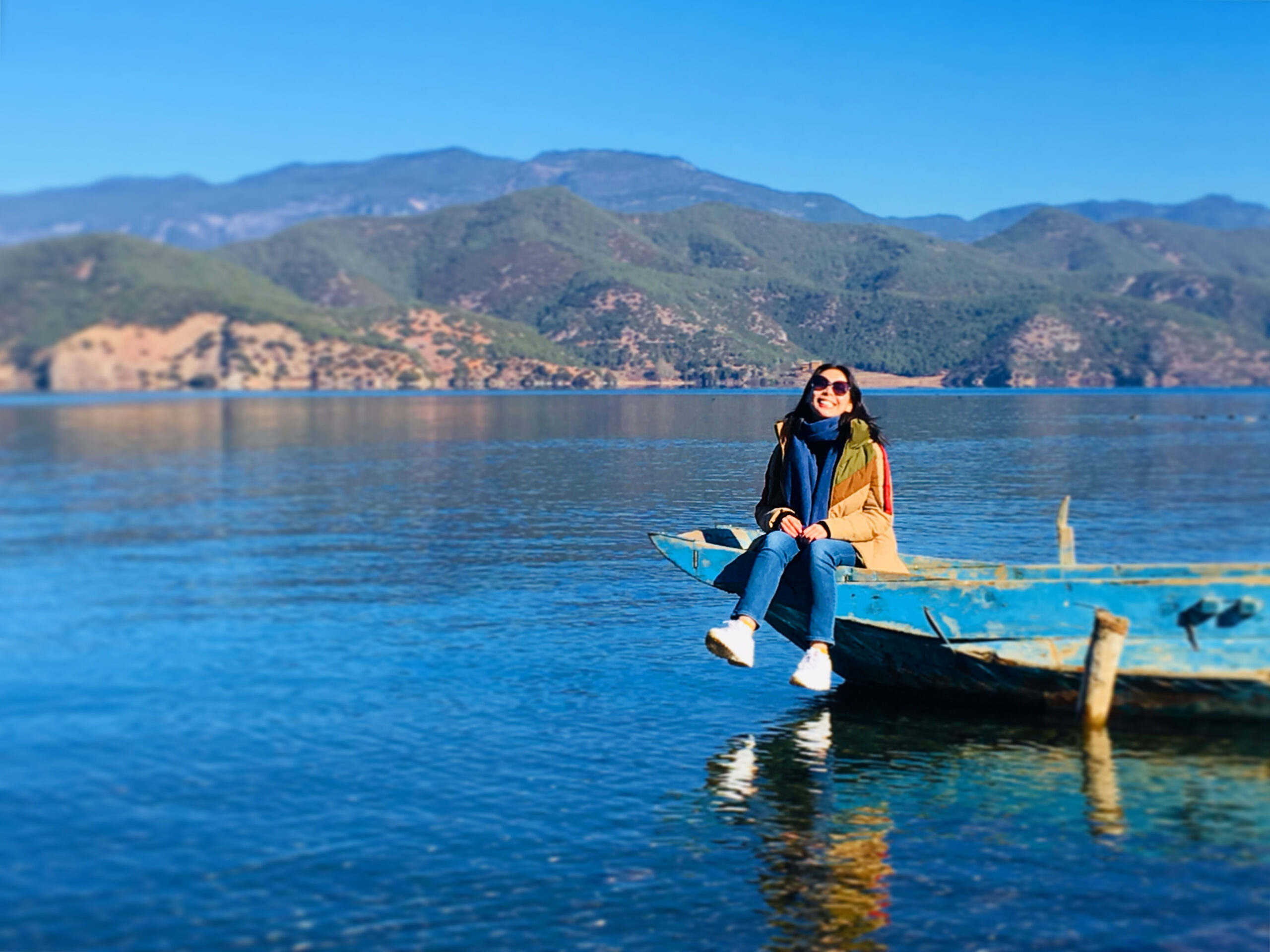 Yezi Yang (she/her) is a graduate student in geochemistry at Virginia Tech. In her PhD program, she uses stable isotopes and other geochemical proxies to understand environmental changes in Earth’s history and how they are linked to the extinction of life. Other than studying (really) dead animals, Yezi is passionate about environmental and climate policy, science writing and feminist activism. She is part of the communications team at Virginia Scientist-Community Interface, and she is excited to get more involved in community-driven science with Thriving Earth Exchange.
Yezi Yang (she/her) is a graduate student in geochemistry at Virginia Tech. In her PhD program, she uses stable isotopes and other geochemical proxies to understand environmental changes in Earth’s history and how they are linked to the extinction of life. Other than studying (really) dead animals, Yezi is passionate about environmental and climate policy, science writing and feminist activism. She is part of the communications team at Virginia Scientist-Community Interface, and she is excited to get more involved in community-driven science with Thriving Earth Exchange.

